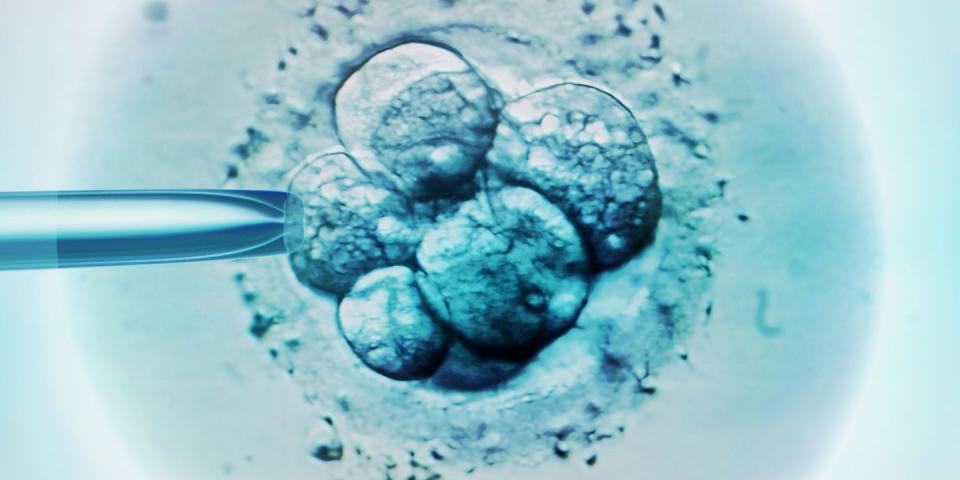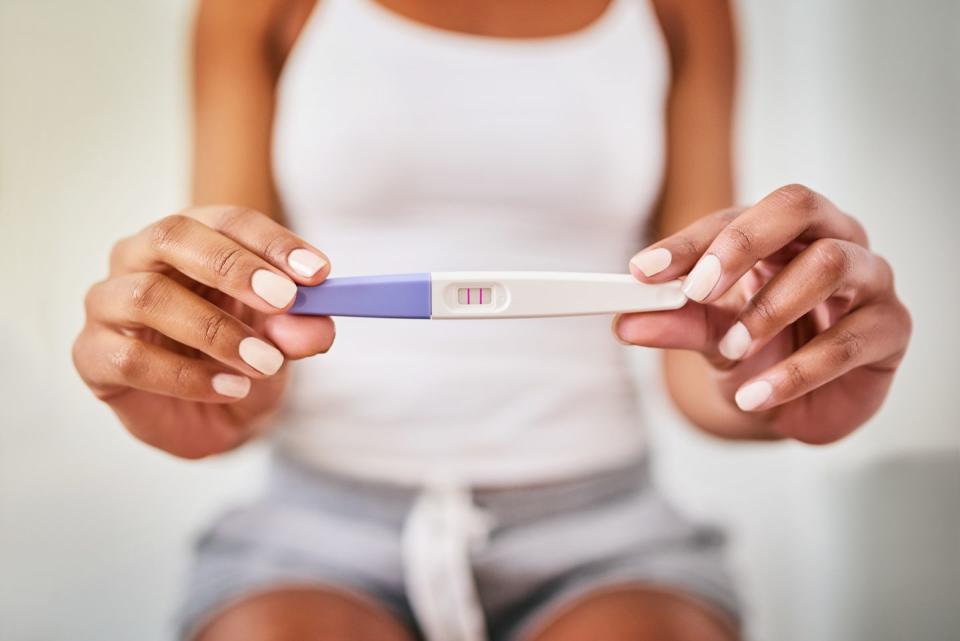How COVID-19 is changing the IVF process

Undergoing fertility treatment can be a tense time for many people, but during the COVID-19 pandemic, this anxiety may be heightened further.
With fertility clinics now reopened, we spoke with Mark Wilcox, Group Medical Director at CARE Fertility, to answer any questions you may have about accessing fertility treatment at this time, and how procedures have changed to help keep you safe.
Are fertility clinics open in the UK?
While fertility clinics were closed temporarily in the UK at the beginning of lockdown, the Human Fertilisation & Embryo Authority (HFEA) announced that clinics could apply to reopen mid-May.
‘Following guidance from the HFEA –the fertility sector regulator – UK fertility clinics suspended new fertility treatment cycles from 23 March, although clinics were allowed to finish treatment cycles that had already started,’ explains Wilcox. ‘At CARE Fertility, this meant we saw our last patient for an embryo transfer on 10 April. After finishing current treatment cycles, all fertility clinics were unable to have patients in the clinics or carry out any treatment procedures, although CARE staff continued working to advise and support patients, such as through free Skype appointments with our specialist fertility counsellors.
‘Following the HFEA’s announcement on 11 May, that fertility clinics could apply to reopen, our COVID-19 treatment commencement strategy was approved by our HFEA inspectors and CARE Fertility resumed treatment at all our main clinics on 13 May.’
Is it safe to start fertility treatment now?
While many people have concerns about returning to day-to-day life since the easing of lockdown, rest assured appropriate measures have been put in place in the fertility treatment sector, to ensure the safely of both you and your embryos, so you can now go ahead with plans for your family.
‘We absolutely have robust and comprehensive protocols to provide treatment in a way that is safe for the patient and for our staff, which have been approved by the HFEA,’ reassures Wilcox. ‘Within the CARE fertility clinics, changes have been put in place to ensure safety of all patients, staff and embryos.
‘Before attending treatment, patients must agree to a code of conduct whereby they agree to avoid any behaviours that might expose the patient to COVID-19 in the workplace or at home, and to follow all government guidelines.

‘Patients will also be asked to complete a questionnaire to screen whether they have, or may be at risk of, COVID-19, and if they’ve been at risk, patients are offered an antigen test [throat and nasal swab] to check if they currently have the virus. Patients can also choose to have an antibody test to see if they have already been exposed to the virus, giving them confidence in the knowledge that they aren’t wasting their medication by starting treatment, for it to then be cancelled if they develop COVID-19.
‘Within the laboratories themselves, CARE Fertility have put additional measures in place to further minimise infection risk and spread of the coronavirus. Though we have never seen an instance of cross-contamination in any of our labs, we are never complacent and will always be cautious; we are therefore performing health checking of all staff and patients before they enter our clinics, introducing physical distancing between, and appropriate PPE for, our embryologists, and increasing the frequency of cleaning with embryo-safe products, among other safety measures.
‘CARE Fertility clinics have also developed a new “Do Not Disturb” policy for embryos that are being incubated, meaning we minimise the number of times we remove embryos from their incubator for assessment.’
What to expect from your fertility treatment during a pandemic
So, with new protective measures in place, what can you expect when you start IVF in these ‘new normal’ times?
Wilcox explains you will likely encounter the following:
Reduced face-to-face interactions
Fertility clinics are reducing face-to-face interactions in multiple ways.
‘At CARE Fertility, we are encouraging patients to take advantage of virtual appointments with doctors, nurses and councillors over Skype or the phone,’ says Wilcox. ‘Though patients can still visit us for consultations if they would prefer, many of our patients love being able to speak with their consultant from home! We are also supporting patients and helping to keep everyone safe by using our online ‘CARE Patient Portal’, where patients can complete consent forms, read key information, view injection teach videos, pay for treatment and more, all reducing necessary visits to our clinics and time spent interacting with staff.’
Fertility testing at home
Wilcox reveals that some fertility tests can also be performed at home.
‘For example, the AMH (anti-mullerian hormone) test,’ he says. ‘Patients simply complete the easy finger prick test and post it back to the clinic for analysis in our laboratory. CARE Fertility are also offering a minimal-contact drop-off service for semen analysis, allowing quick diagnostic semen test results while removing the necessity for semen providers to come into our clinics.
Social distancing measures
When you do need to visit your fertility clinic, it will likely look a little different.
‘Some of our new ways of working include new clinic layouts, to facilitate social distancing, fewer staff in clinics, as some continue to work from home, and during times when patients do directly interact with members of our teams, we are following proper social distancing guidance and wearing PPE, where appropriate.
Obligatory face masks
To keep both you and staff safe, you will likely also be required to wear a face mask.
‘We are asking patients to wear a face covering when visiting us and will give them a face mask to wear if they do not have one,’ says Wilcox.
Delaying fertility treatment due to COVID-19
What if the pandemic has found you feeling anxious about proceeding with planned fertility treatment, or you’re nervous about the implications were you to come into contact with COVID-19 while pregnant?
Wilcox says that, while concerns are completely normal, all the evidence suggests there is no greater risk to either you or your baby at this time.

‘The UK’s specialist body, The Royal College of Obstetricians and Gynaecologists (RCOG), has advised that there is no evidence that COVID-19 infection is any worse in pregnancy, nor does it increase the risk of miscarriage or pregnancy complications,’ he reassures. ‘The RCOG has also advised there is no evidence of babies being born with harm as a result of COVID-19 infection, and the UK Government has not advised the general population to avoid becoming pregnant.
‘We hope this reassures patients, but we of course realise that patients may have their own personal reasons for wanting to delay becoming pregnant. If patients are worried, there are many things we can do to help and our expert teams will support patients to explore their options, including the possibility of creating and freezing embryos for when patients feel ready for a frozen embryo replacement cycle. We can also prepare everything needed for treatment, such as complete fertility tests, plan medication protocols and sign consent forms in advance, so that we can continue a patient’s treatment as soon as they feel ready to do so.’
Storage limit extension
Fertility clinics can only store eggs, sperm and embryos for up to ten years. This means, if you’re nearing this time limit and had your fertility treatment postponed due to lockdown, or you’re now unsure whether to go ahead at present, you could be facing further anxiety.
However, Wilcox says the Government has addressed this issue, to give patients more time.
‘In recognition of the potential impact that the COVID-19 pandemic may have on those wishing to start a family, the Government has confirmed that the current ten-year storage limit for embryos and gametes will be extended by two years,’ he reveals. ‘This welcome announcement gives patients some much-needed reassurance that they can try for their longed-for family without being forced into a rushed decision.’
Last updated: 10-07-20
You Might Also Like

